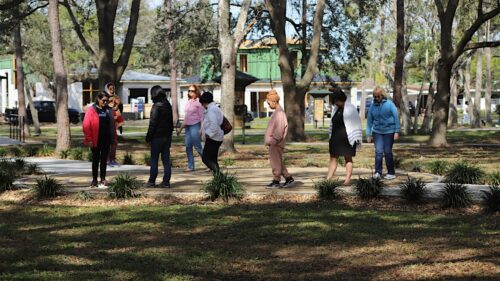We’ve all been there — had arguments with friends, family or even our neighbors. Arguments are a part of life. They are a natural and inevitable experience, and are tools for expressing or discovering reasons for positions and policies. But rather than fights or competition, arguments can help us appreciate each other, get along peacefully, and work together—even when we disagree strongly. In this virtual program, Walter Sinnott-Armstrong, a Chauncey Stillman Professor of Practical Ethics at Duke University, will share more about how we can all benefit from learning how to argue better.
By participating in this program, you can also expect to learn how:
- arguments are not fights.
- arguments can help us understand each other.
- analyzing arguments can provide joy.
This program is presented by Walt Sinnott-Armstrong and is hosted by the Winter Park Health Foundation.
How to join the Zoom Program:
Upon registration for this program, you will receive two emails:
• One email from Eventbrite: you can either disregard this email or save it for your records. No action needed with this message.
• One email from the Center for Health & Wellbeing: this email will contain your link to join the Zoom meeting. Simply select the link and the Zoom Meeting will launch. Please allow yourself five – 10 minutes before program start to launch Zoom and confirm your technology is properly working.
All CHWB Digital Education Programs are now presented with live captioning service. Please refer to your registration confirmation email for instructions on enabling live captions.
By participating in this program, you agree to the CHWB’s Gracious Space policy. Unless otherwise noted, all CHWB Digital Education programs hosted via Zoom are recorded and made available for on-demand viewing on WellbeingNetwork.org. If you prefer to be left out of the program’s recording, please leave your camera and microphone off for the duration of the program.
About Your Program Presenter
Walter Sinnott-Armstrong is Chauncey Stillman Professor of Practical Ethics in the Department of Philosophy and the Kenan Institute for Ethics at Duke University. He holds secondary appointments in Duke’s Law School and Department of Psychology and Neuroscience. He earned his bachelor’s degree from Amherst College and his doctorate from Yale University. He has published widely on ethics, empirical moral psychology and neuroscience, epistemology, informal logic, and philosophy of law, religion, and psychiatry. His current work focuses on political polarization, moral artificial intelligence, free will and moral responsibility, and various topics in moral psychology and brain science. His most recent books are about how arguments can remedy political polarization and about scrupulosity (obsession with morality). He co-teaches a MOOC, Think Again, with over 1,000,000 registered students.







